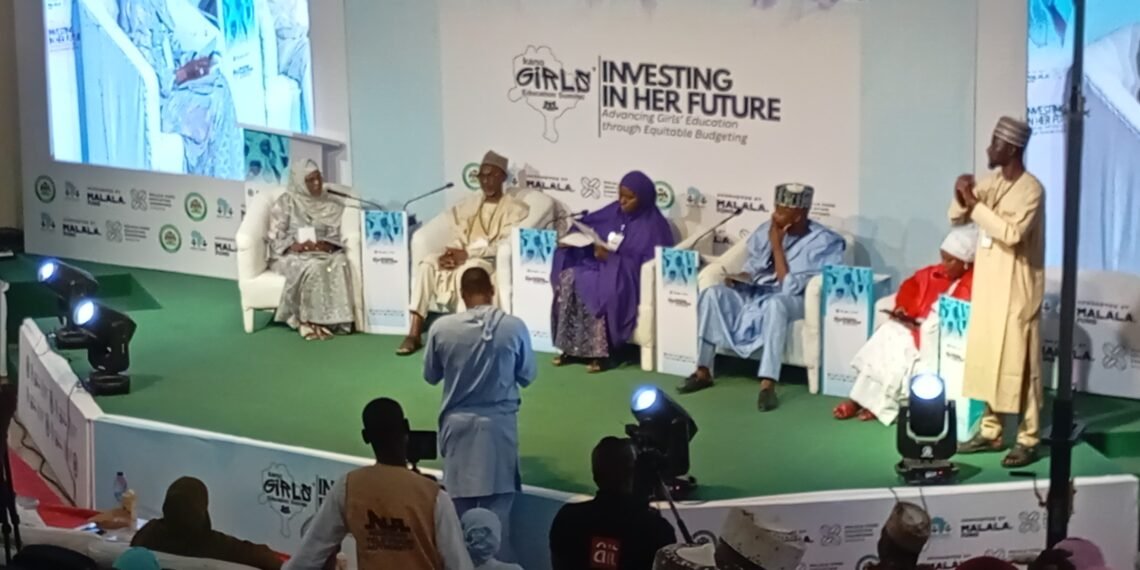The Kano Girls’ Education Summit, convened under the Bridging Access to Girls’ Education (BAGE) project organised by the Bridge Connect Africa Initiative, has brought together policymakers, development partners, educators, and civil society actors to consolidate reform efforts, amplify grassroots voices, and strengthen political and community commitments toward equitable education financing for girls in Kano State.
The event carried out in collaboration with the Kano State government with support from the Malala Fund, has the the theme: “Investing in Her Future: Advancing Girls’ Education Through Equitable Budgeting,” forms part of ongoing efforts to translate policy commitments under the state of emergency on education into classroom realities.
Speaking at the opening ceremony, the Chief Executive of Malala Fund Nigeria, Ms. Nabila Aguele, reaffirmed the fund’s commitment to supporting Kano in advancing gender equity in education financing.
She commended the state’s adoption of the Gender-Responsive Education Budgeting (GREB) framework, describing it as a milestone toward sustainable, inclusive growth.
“Our shared goal is to ensure that every girl in Kano has access to quality education and the opportunity to learn, lead, and thrive.
“Education drives growth, strengthens communities, and fosters peaceful, equitable societies. When girls are educated, entire families and nations prosper,” she said.
She lauded the state’s leadership for prioritizing girls’ education and creating inclusive systems that leave no girl behind, while praising BCAI for its transformative efforts through the BAGE project.
Read also:
- Kano Government to sponsor mass wedding for 2,000 couples under social welfare scheme
- World Food Day: Agribusiness and Value Chain Summit 2025 set to drive food security, sustainability in Abuja
- New justice commissioner vows discipline, Efficiency, prison decongestion in Kano
The Kano State Commissioner for Education, Haruna Makoda, highlighted the government’s budgetary commitment, noting that the state allocated 29.75% of its 2024 budget to education, which increased further in 2025.
He said this includes support for girls’ education initiatives such as the restoration of over 70% of shuttle buses for female students and the construction of gender-sensitive infrastructure across all 44 local governments.
Makoda added that the government recently integrated 4,315 teaching staff into permanent positions and continues to invest in teacher training to improve classroom quality.
Executive Director of BCAI, Sani Muhammad, described the summit as a platform for shared vision and accountability, emphasizing that equitable education financing is key to sustainable change.
“This summit marks another milestone in Kano’s journey to ensure every girl not only learns but truly thrives,” Muhammad said.






